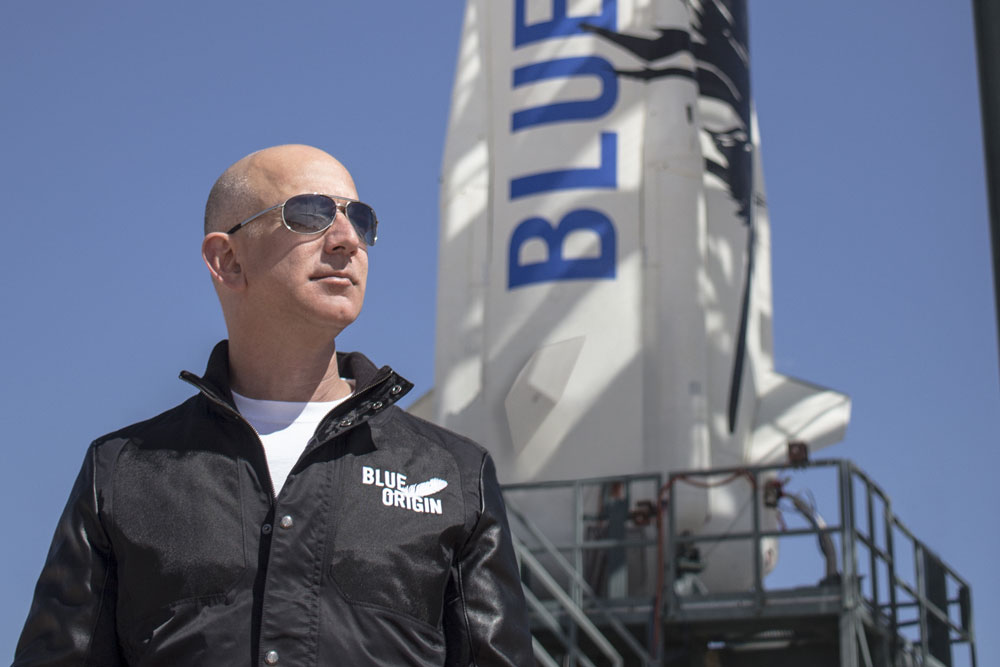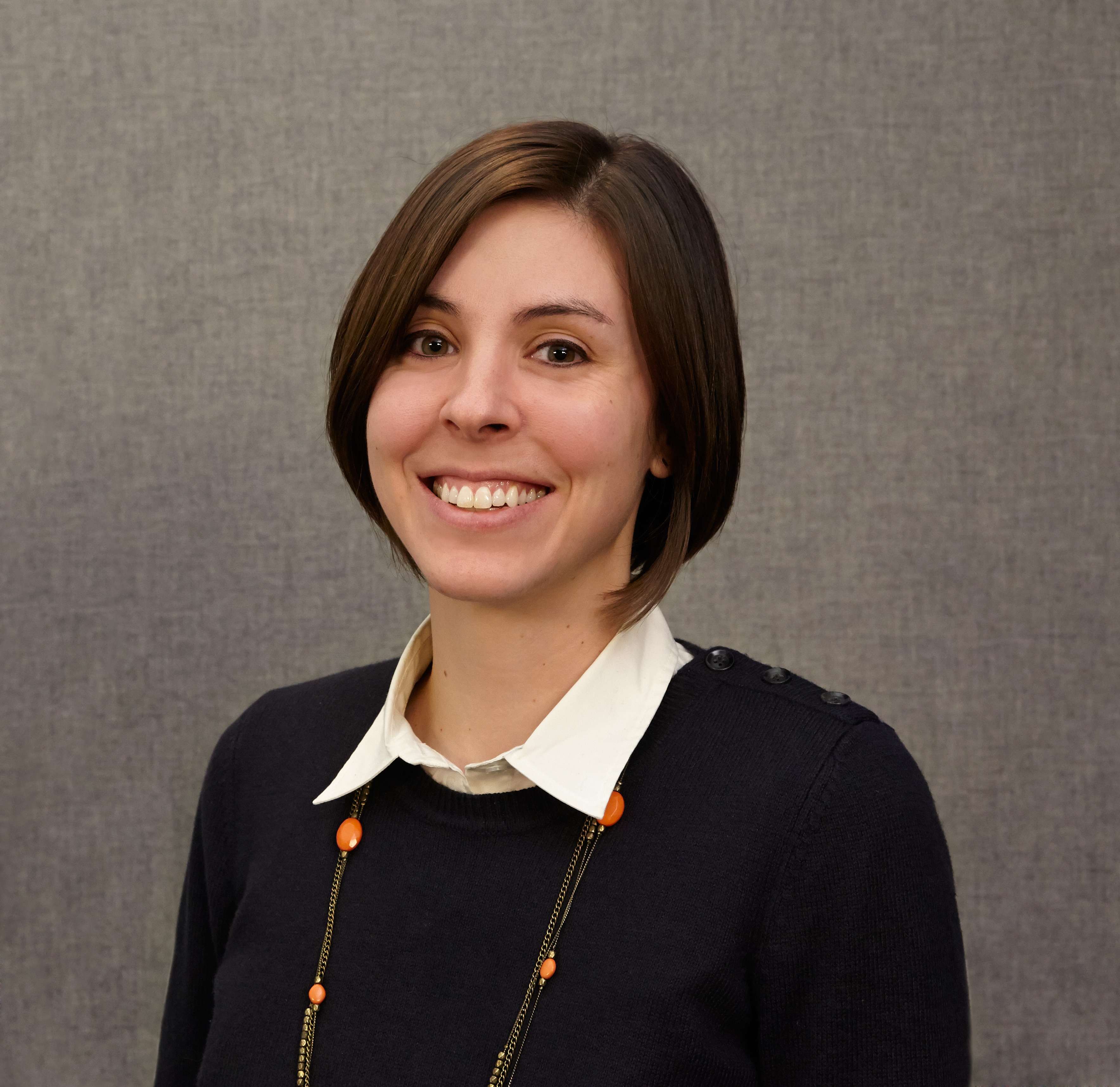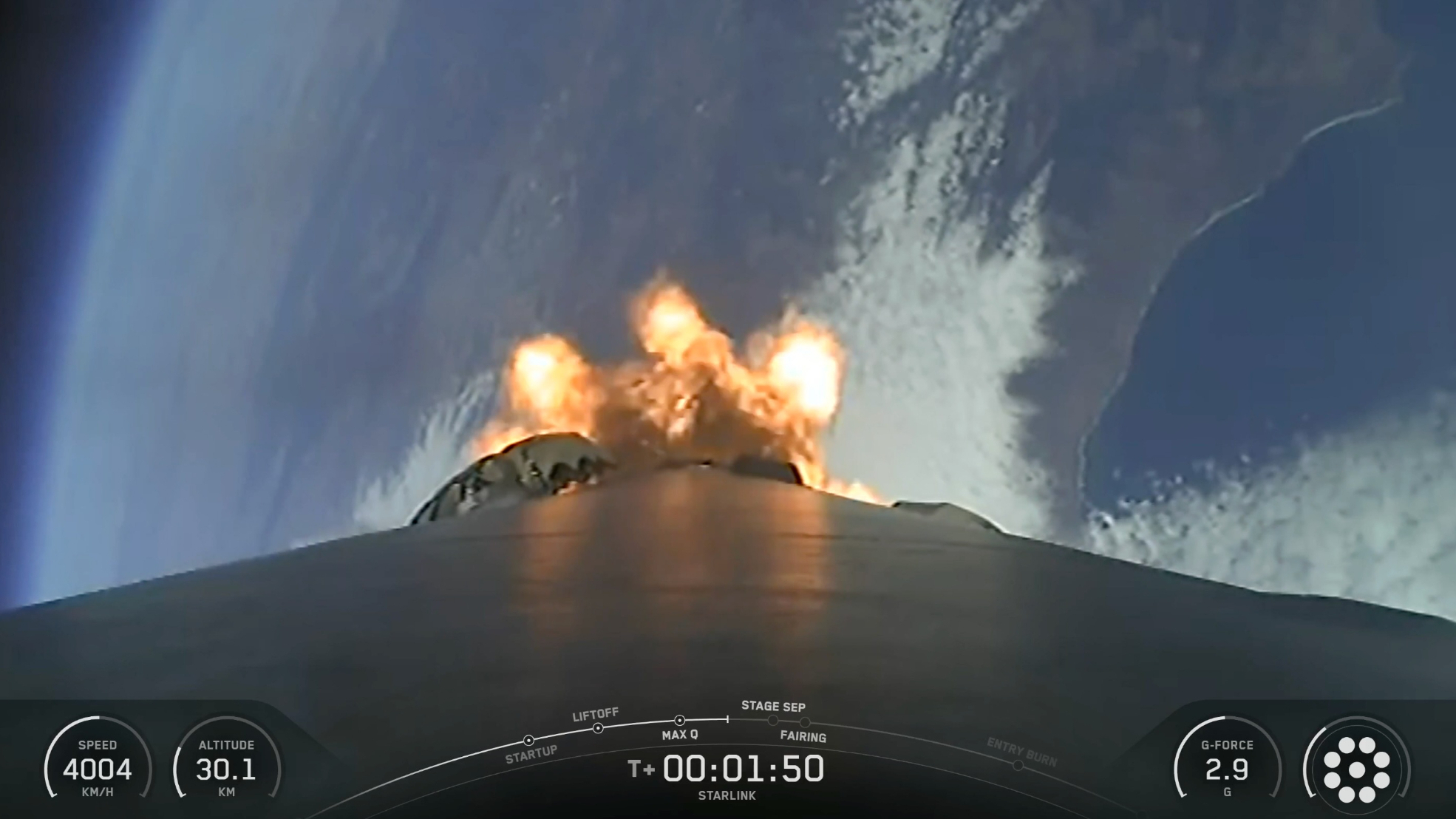Spaceflight Is Entering a New Golden Age, Says Blue Origin Founder Jeff Bezos

Early Monday (Nov. 23), the private spaceflight company Blue Origin made a major stride in the pursuit of fully reusable rockets, when it launched an uncrewed vehicle into space and then soft-landed the rocket booster on the ground.
"It was one of the greatest moments of my life," said Jeff Bezos, Blue Origin's founder, speaking about the landing in a press briefing yesterday (Nov. 24). "And my teammates here at Blue Origin, I could see felt the same way. People who go into this business do it because they think it is important and care about it."
Blue Origin has been somewhat secretive about the gradual development of its suborbital crew vehicle, New Shepard, but Bezos, who is also the founder and CEO of Amazon.com, wasn't shy in talking about how reusable rockets would help the company pursue its much, much larger goal: "To see millions of people living and working in space." [Video of Blue Origin's Historic Rocket Landing]
Blue Origin's New Shepard space capsule is a suborbital vehicle — meaning it doesn't go fast enough or high enough to reach an altitude where it could orbit the Earth — that could take paying customers on short trips into microgravity. It could also serve as a laboratory for microgravity experiments.
Part of Blue Origin's plan for New Shepard is to make the rocket portion of the vehicle reusable. Typically, rockets that lift large payloads into orbital or suborbital space fall back to Earth (usually into the ocean) and are discarded after one use. Bezos has repeatedly emphasized the need for reusable rockets in order to drive down the cost of trips to space.
"The reason that space travel is so expensive is because we throw this expensive, aerospace-grade rocketry away after every use," Bezos said in the press briefing. "And so the Holy Grail of rocketry, to make it less expensive, is full reusability. So that’s really the key to getting millions of people living and working in space, exploring the solar system, going to Mars, going to everywhere else. We need to dramatically lower that cost."
The successful landing of the New Shepard rocket is obviously an important step for Blue Origin in achieving full reusability in its rocket fleet. SpaceX, the private spaceflight company founded by Internet billionaire Elon Musk, has made two attempts to land the first stage of its Falcon 9 reusable rocket in the last year — both of which were near misses.
Breaking space news, the latest updates on rocket launches, skywatching events and more!
Bezos expressed some disappointment that rocket technology has not advanced more since the 1960s. He noted that if Wernher von Braun, one of the founding innovators of modern rocket technology, "came back from the dead today and looked around at our current fleet of rocket vehicles, he would recognize them all. There would be very few surprises for him.
"He'd say, 'Oh, you're still throwing them in the ocean? I thought by now you'd be reusing them.' And it is time for us to do that. And we have the tools and the technologies."
"I believe that this is a new golden age of space exploration," Bezos said. "I think the first golden age was the 60s. And I think we have been treading water for a long time. And what you're beginning to see now is that some new things are coming out and I'm very, very excited about that."
Follow Calla Cofield @callacofield. Follow us @Spacedotcom, Facebook and Google+. Original article on Space.com.
Join our Space Forums to keep talking space on the latest missions, night sky and more! And if you have a news tip, correction or comment, let us know at: community@space.com.

Calla Cofield joined Space.com's crew in October 2014. She enjoys writing about black holes, exploding stars, ripples in space-time, science in comic books, and all the mysteries of the cosmos. Prior to joining Space.com Calla worked as a freelance writer, with her work appearing in APS News, Symmetry magazine, Scientific American, Nature News, Physics World, and others. From 2010 to 2014 she was a producer for The Physics Central Podcast. Previously, Calla worked at the American Museum of Natural History in New York City (hands down the best office building ever) and SLAC National Accelerator Laboratory in California. Calla studied physics at the University of Massachusetts, Amherst and is originally from Sandy, Utah. In 2018, Calla left Space.com to join NASA's Jet Propulsion Laboratory media team where she oversees astronomy, physics, exoplanets and the Cold Atom Lab mission. She has been underground at three of the largest particle accelerators in the world and would really like to know what the heck dark matter is. Contact Calla via: E-Mail – Twitter
